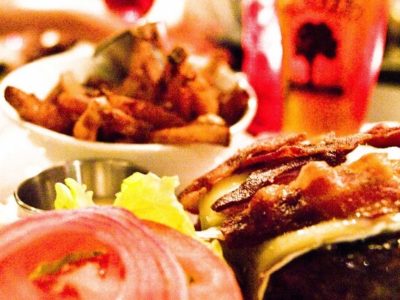First step into a university lecture and I already messed up. A single student sprawled out in the middle of an amphitheater-sized room was taking notes in what was supposed to be Economics 101. I found myself in utter confusion and thought: Why is he studying there? Then another quickly overcame me: Where am I? I didn’t think about that lone student until Psychology 101, which made me realize that he’s probably the only first year student that knows what he’s doing. Advances in psychology, specifically research of memory, show that such study strategies can be effective. Basically, studying psychology can help us study how to study. Let’s bring to light the value of psychology in improving memory and university study habits.
Minimize Interference

Minimizing distractions is a key component to developing efficient study habits. Distractions interfere with the learning process. Interference causes failed encoding, a psychologist’s term for absorbing and retaining information*. The stress of several classes, a temperamental girlfriend and nosy parents can make it difficult to focus on memorizing a page full of trigonometric identities however, it is possible to be productive in the chaos. By breaking down interference into two categories, proactive and retroactive, we can eliminate factors that hinder recall, the process of accessing a memory*.
Proactive interference comes into play when old material inhibits your ability to learn new material. For example, if I study English on Tuesday for a test Thursday then study history Wednesday, the fresh knowledge of history is likely to interfere with your performance on the English test. In contrast, retroactive interference occurs when something new that you learned hinders your memory of old material.
Distribute Learning Over Time

Now you may ask yourself, how am I supposed to learn if both proactive and retroactive interference are taking place? The answer is simple: Alternate. By alternating between subjects as opposed to studying a single one, your brain is more likely to create stronger connections to the material, allowing you to absorb and retain more information.
Psychologist Nate Kornell, Ph.D. at Columbia University and postdoctoral fellowship at UCLA, performed a study testing the effectiveness of cramming for tests. He concluded: “Spacing [a study method that consists of spacing out study sessions over time] is more effective than cramming, even if total study time is controlled. Furthermore, learners who perceive massed [cramming] study as more effective than spaced study should beware: Massed study is seductive, and it can appear to be more effective than spaced study even when spaced study is the more effective strategy”**. Spacing out study time could be the boost you need to get that A you’ve been craving for. Try to bust out the flashcards at lunch, it could save you from an all-nighter.
Use Imagery

Think back to the anecdote in the introduction. The student in the lecture hall was using a form of imagery to increase the ease of encoding the material. By studying in the same room as the test, the student will create retrieval cues that may be triggered during the exam. Let’s say he was staring at the clock every time he repeated the Pythagorean theorem, then the clock may trigger his memory in the future. The clock becomes a retrieval cue for the memory of the Pythagorean theorem. In psychology, this is known as the encoding specificity principle*. In short, “memory is enhanced when cues present during retrieval match those that were present during encoding”*.
Alan Collins, an esteemed psychologist, supports this claim and said, “If attention and association were both strengthened, the true or natural capacity of our memories could then be realized””***. Memory is a compilation of connections between things we see, feel, hear, and touch. This web of connected thoughts and behaviors is called a schema*. The recall of a memory will trigger the recall of many other memories that were connected in the schema. These recollections don’t necessarily need to be tangible. For example, hearing a love song may cause you to think of your partner, triggering feelings of affection. In addition to seduction, this principle applies to studying. Incorporate visual elements into your study habits to encode information more thoroughly, which ultimately allows you to retrieve the information from your long-term memory more easily.
Overlearning

Have you ever forgotten something that you’ve learned a million times? Memory is far from perfect. Although many tricks improve encoding and retention, overlearning is the key to a strong memory. I don’t mean you should study to the point of exhaustion. Overlearning is a simple psychological principle that states: Once something has been learned, it needs to be maintained in order to solidify in your long-term memory*.
Overlearning is supported by the decay theory, which says physical memory traces within long term memory deteriorate over time if they are not used*. Imagine all of the things that you learn every day! It’s impossible to expect your brain to recall all of this information without practice. Indeed, learning material once is not sufficient. It is recommended to continue studying after a successful study session because by the end of the day, the knowledge will be replaced by the thought of Donald Trump’s wig falling off.
- Psychology: Frontiers and Applications by Michael W. Passer
** “Optimising Learning Using Flashcards: Spacing Is More Effective Than Cramming” by Nate Kornell
*** “Advice for Improving Memory: Exercising, Strengthening, and Cultivating Natural Memory” by Alan F. Collins




















